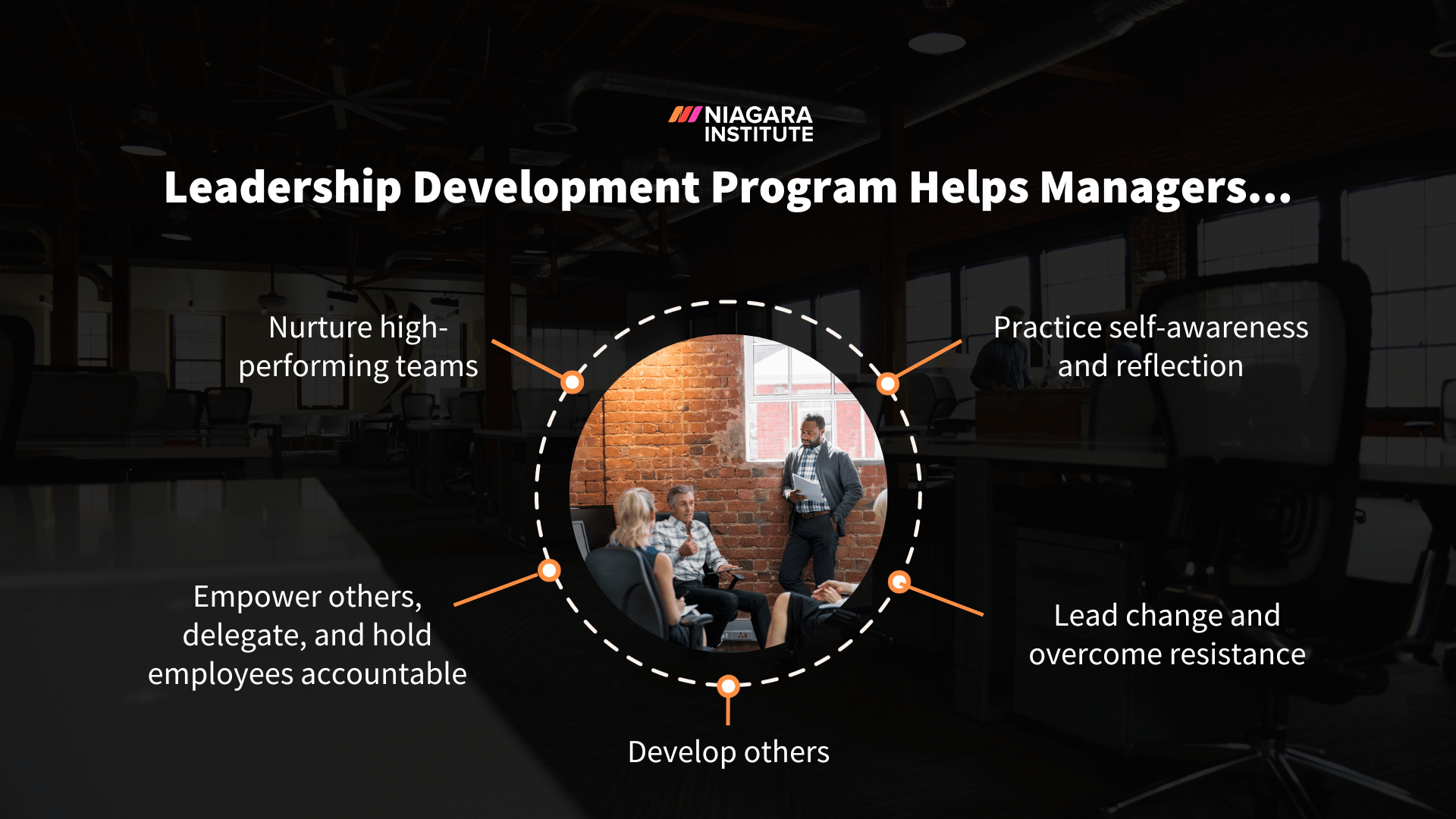5 min read
What Is Leadership Development Coaching? (+Examples)
What do you do when you have a learning objective or development goal that no training program curriculum matches up with? What if you have a leader...
3 min read
 Michelle Bennett
:
Jun 29, 2021 5:24:00 AM
Michelle Bennett
:
Jun 29, 2021 5:24:00 AM

“The more I learn, the more I realize how much I don’t know.” This famous quote from Albert Einstein perfectly explains my initial transition from individual contributor to leader. It wasn’t until I attended a leadership development program that I realized how little I really knew about people management and that the leadership skills I needed had nothing to do with how well I understood the functional activities of my department.
Looking back, I wished I was better prepared to step into my team leadership role by pursuing training before taking on a team. I was a team leader who wasn’t trained to lead. Sadly, this is common, as one survey found that 58% of managers said they didn’t receive any management training.
The knowledge and skills acquired from attending a leadership training program helped me become the leader that my team deserved. Here are five specific things I learned that have stuck with me since I first took a leadership training program for managers.

It goes without saying collaboration among employees is important to getting things done. However, knowing it is important and facilitating it are two different things. In my experience, attending a leadership development program enhanced my awareness of the value of high-performing teams and how I could actually create them.
The training helped me understand the value of creating a safe team environment where team members felt free to share their ideas without fear of ridicule or judgment and gave me the skills I needed to make it a reality. Leadership training also reinforced the importance of frequently communicating the goals, roles, and responsibilities of the team, breaking down internal silos to work with other departments to achieve our respective goals, and encouraging team problem-solving and consensus-building.
Developing your people isn’t solely a function of the HR department. I learned that managers have a critical role in developing, growing, and releasing the unique talents and strengths of each individual on their team. But how do you actually do this? My training included topics on how to be a coach and the communication techniques for delivering encouragement and constructive feedback to help employees grow. All things that were before training were missing from my management playbook to the detriment of those on my team.
There is great value in learning coaching skills as the better you are at providing feedback and uncovering the strengths in each individual; the more skilled your employees become, and the likelihood that your team will achieve their desired results increases. Gallup has found that when employees understand and use their strengths, they on average, experience a 10-19% increase in sales and a 14-29% increase in profit, along with other bottom-line results. This alone can justify the investment in a leadership development program.
Empowerment, delegation, and accountability are not necessarily inherent talents, and for me, it was a skill that I needed to develop with practice and time. Leadership training provided this opportunity as I learned the best practices of empowering employees to take action, how to delegate in a way that doesn’t set someone up for failure, and the importance of holding those around me accountable.
No leader can do it all, and empowerment and delegation are key for getting things done as well as increasing an employee’s level of job satisfaction as they feel they have the freedom and ownership over their roles. However, things will go sideways without accountability, that is, a person’s willingness to take ownership of their actions and outcomes. Empowerment and delegation do not work without accountability. Knowing this enabled me to give my team the freedom they craved while setting clearly defined boundaries in which they could operate.
I learned the hard way that most people don’t like change when they haven’t had a chance to provide input or feel heard. Attending a leadership development program provided me with the tools to actually lead change in a way that my team doesn’t actively resist. It also helped me come to understand that leading change requires much more than announcing things are going to be different. Today, I ensure I take the time to communicate why the change is happening and the benefits of doing so, seek out feedback and input on the change before it takes place, involve my team in the tactical execution of the change, and celebrate the milestones we achieve along the way.
One of the greatest benefits of leadership training to me personally was the opportunity it provided for self-reflection on what type of leader I wanted to be, what my leadership values are, and my aspirations for the way I wanted my team to operate. In the busyness of endless emails and meetings, taking the time to think about my own leadership style wasn’t even on my radar. Stepping away from my role to attend a leadership development program allowed me to uncover the type of leader I wanted to be for my team and how to put that into practice.
The most successful athletes didn’t achieve success overnight. Their careers culminated in years of deliberate practice, learning, and building a successful track record one game or match at a time. Leadership is much the same. If you make a continual investment in your development, such as seeking out training on a variety of leadership topics, it is possible to become the best leader you can be. Ultimately, the effort pays off in having a thriving team, being a leader others want to work for, and one that advances their career quickly.
.png)
5 min read
What do you do when you have a learning objective or development goal that no training program curriculum matches up with? What if you have a leader...
.png)
5 min read
Are you new to management, looking to upgrade your leadership skills, or sourcing leadership training for your employees? If the answer is yes,...
.png)
8 min read
Leadership training is a two-way street. Not only do organizations need to be willing to invest time and money into training their leaders, but...